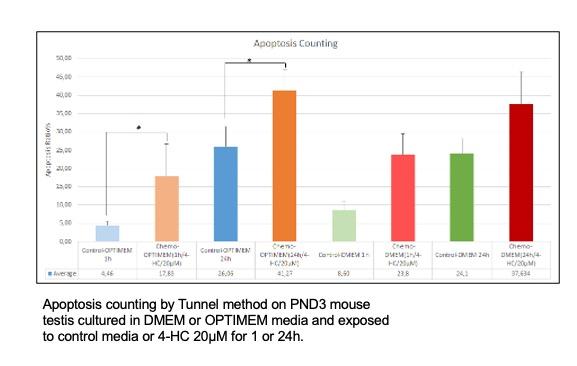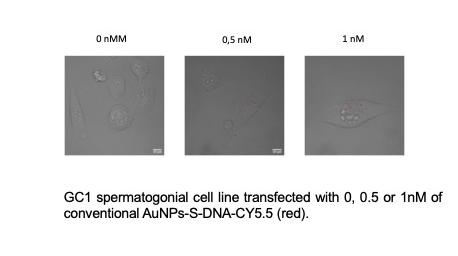In the same section
- Médecine
- Human Reproduction
- EN
- Activities
- Male fertility projects
- Pharmacological protection of the testis
Pharmacological protection against chemotherapy damage
Thanks to the very encouraging results obtained in the ovary using miRNA therapeutics in the reproduction lab, we aim now to develop this innovative alternative to protect the testis and its immature germ cells from the deleterious effects of chemotherapeutic agents.
Non-invasive pharmacological protection of spermatogenic cells would represent a breakthrough improvement to preserve fertility for a number of patients, especially prepubertal boys, where sperm banking is not an option.
The therapeutic strategy envisage microRNA (miRNA) as pharmacological tools to protect germ cells from cell arrest and apoptosis.
The laboratory is working on this project in collaboration with Prof. Gilles Bruylants from the Engineering of molecular Nanosystems Laboratory (Brussels School of Engineering, ULB) in order to develop an appropriate miRNA delivery system for in vivo studies.
Non-invasive pharmacological protection of spermatogenic cells would represent a breakthrough improvement to preserve fertility for a number of patients, especially prepubertal boys, where sperm banking is not an option.
The therapeutic strategy envisage microRNA (miRNA) as pharmacological tools to protect germ cells from cell arrest and apoptosis.
The project investigates the miRNAs expression profiles in normal spermatogenesis and after administration of cyclophosphamide (CY) to identify specific differently expressed miRNAs and evaluate the role of these miRNAs in cell proliferation, apoptosis, and DNA damage repair during chemotherapy exposure. These data will provide new targets to modulate/reduce de gonadotoxic effects of Cy on the male germ line and preserve fertility of cancer patients.




The laboratory is working on this project in collaboration with Prof. Gilles Bruylants from the Engineering of molecular Nanosystems Laboratory (Brussels School of Engineering, ULB) in order to develop an appropriate miRNA delivery system for in vivo studies.
